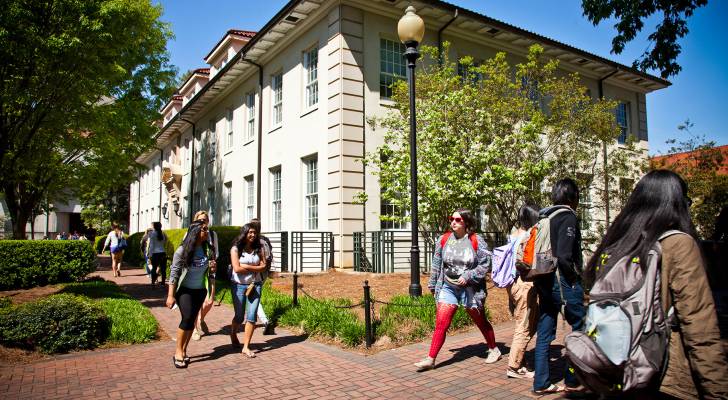Emory University
Palestinian-American student suspended for saying professor was 'Israeli' army medic
Umaymah Mohammad, a PhD and medical student at Emory University, has been suspended for a year after criticizing a professor’s past role as a medic for the 'Israeli' forces.
In a 2024 interview, she questioned how the professor, who she did not name, could teach medicine after participating in a military campaign that killed thousands of civilians in Gaza. The professor later filed a complaint, citing safety concerns, which led the university to accuse Mohammad of violating its code of conduct.
She said that the professor “participated in aiding and abetting a genocide, in aiding and abetting the destruction of the healthcare system in Gaza and the murder of over 400 healthcare workers, and is now back at Emory so-called ‘teaching’ medical students and residents how to take care of patients.”
At a disciplinary hearing, Emory officials insisted she accept the investigation’s findings or face consequences. Mohammad described the process as “dehumanizing,” with some faculty members demanding she never be allowed to practice medicine.
Her suspension comes amid a wider crackdown on pro-Palestine voices in US academia. An Iranian professor was blocked from Yale over unverified allegations, and a Georgetown researcher was detained by US authorities. Palestinian activist Mahmoud Khalil, a Columbia graduate, was also detained and is now fighting a legal battle to stay in the US.
These cases highlight growing restrictions on academic freedom and speech on Palestine in the US, especially after the Trump administration, congressional Republicans, and pro-'Israel' groups like the Anti-Defamation League (ADL) are intensifying efforts to suppress academic freedom and speech on Palestine in US universities. By equating criticism of 'Israel' with antisemitism, they have pressured institutions to eliminate diversity, equity, and inclusion (DEI) programs or risk losing federal funding.
As a result, many universities have shut down DEI offices, removed content, and imposed stricter policies on student activism. Pro-'Israel' groups have also filed complaints, leading to investigations and disciplinary actions against students and faculty.




